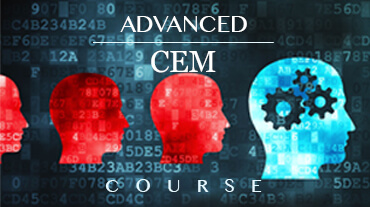95% or a person’s processing power is the subconscious experience. Knowing this percentage, how can you harness the incredible power of the Customers’ subconscious mind to create a positive experience?
Let’s look at two industries have embraced this and see what we can learn from them: Restaurants and Casinos.
What these industries do to create a positive experience for their diners or players show us the importance of designing a deliberate subconscious experience for your customers, whomever they might be.
The Business of Dining Out
Restaurants are adept at getting their customers to relax and enjoy their dinners. They consider all the details of the experience to present their guests with the best possible outcome for their meal. Here are a few examples:
- They set the mood right at the start. When you arrive, the host greets you. They will check your coat (if applicable for the venue), ask you if you have a reservation, direct you to the bar to get a cocktail while they “prepare your table,” and make you feel welcome and important. This process helps their guests relax and enjoy their status as guests.
- The soundtrack matters. According to experts, guests feel more affluent when they listen to classical music. Many restaurants choose a classical soundtrack to help diners feel wealthier than they are. Then, they are more likely to order what looks good instead of what fits their budget. On the other hand, pop music reduces the average spend by customers in a restaurant by as much as 10%.
- There is a method to the menu. In an article on businessinsider.com, I learned the psychology of presenting a menu that is meant to increase the amount of money a Customer spends on dinner. From the lack of dollar signs next to how the amounts listed to the prominent placement of high priced items to make the rest appear like a bargain by comparison, careful thought has gone into each aspect of the menu. Every inch of them designed to make diners forget they are spending money.
- Clear them off and clear them out. In high turnover dining experiences, like chain restaurants, waiters are instructed to clear away the empties quickly. Not only does this improve the experience for guests to enjoy a clean table, but it also helps signal that their experience is ending.
Many of these experience details help diners enjoy their meal without worrying about the check. As you can see, however, they also benefit the establishment. They help Customers spend more and have a great time so that they want to come back. They also know when to leave…so the restaurant can seat someone else who is waiting.
There is a Reason They Call it “Lost Wages!”
If restaurants are trying to get you to spend more and enjoy your experience, casinos are going for every last penny and tempting you into coming back for more. There is a reason they call Las Vegas, “Lost Wages!” As I have written before, casinos’ methods do not restrict your free will, but they certainly limit your options while you are there. Let’s look at the business of making sure the house always wins:
- It’s designed to keep you there. Literally. There are purposely no clocks, anywhere, no watches on employees and no windows so you can see what time of day it is. Casinos are designed to make players forget about their other commitments and lose themselves in the pursuit of winning. Also, essential services like bathrooms and cashing out your chips are deep in the heart of the casino, so you pass more machines on your way. And forget about finding your way back; casinos are designed to be difficult to find your way out.
- They make it comfortable for you. There are drinks passing by from attractive waitresses. The lighting is dim and homey. All around you are happy sounds and dings that indicate that people are winning (although mostly they aren’t). Casinos know that as long as your needs are met, you will stay there, parting with more and more of your hard-earned cash.
- They always make sure you win just enough. Listverse.com explains that Casinos make sure that you always feel like you are close to hitting it big. Machines are rigged to give you little wins along the way and always be just one cherry off the jackpot. Every game in the casino employs this near win strategy. The idea is that they give them a taste of the victory, but never fully satisfy it. People think if they just play a little longer…well, you can see how it goes from there.
So what does this mean to my Customer Experience?
In both of these examples of restaurants and casinos, there is great care and planning that goes into the experience for the guests. Every detail, from how the prices are listed in the menu to how bright the light is in the Sports Book, has been considered to give the proper psychological cues to the Customers. Restaurants and casinos are using their Customers subconscious minds to help them enjoy themselves and the experience they are having. In the process, the business gets more of their money.
Your industry has a unique set of subconscious clues; you just have to recognize them. As Professor Ryan Hamilton will be going though is our upcoming training event, “Examining Consumer Psychology: How to Influence Customer Decisions,” these types of theories and their implications can have a profound influence on consumer behavior. Understanding these indicators are key to influencing the Customer behavior in your experience.
Whether you are a bank, a supermarket or a telecom, there is a psychology to your experience that can be designed to provide a better experience for your customers. Finding these clues is essential to creating a Customer Experience that will surprise and delight your customers. Chances are right now, those clues have not been deliberately addressed in your experience, which as we often say leaves them up to chance.
If there is one thing we can all learn from casinos is that they leave nothing up to chance. That is why the house always wins, and players keep coming back for more.
Do you know the psychological cues in your experience? I would be interested to hear about these in your comments below.
For more Customer Experience concepts, register for our Advanced Customer Experience Management (CEM) Certification Course beginning on April 20th. 
Please click here to learn more.
If you enjoyed this post, you might be interested in the following blogs:
- Tricks or Treasure? An Inside Look at the Casino Experience
- Recognizing the Subconscious Experience
- The Relationship Between Customer Experience Management and Sales
Colin Shaw is the founder and CEO of Beyond Philosophy, one of the world’s first organizations devoted to customer experience. Colin is an international author of four bestselling books and an engaging keynote speaker. To read more from Colin on LinkedIn, connect with him by clicking the follow button above or below. If you would like to follow Beyond Philosophy click here.
Follow Colin Shaw on Twitter @ColinShaw_CX


